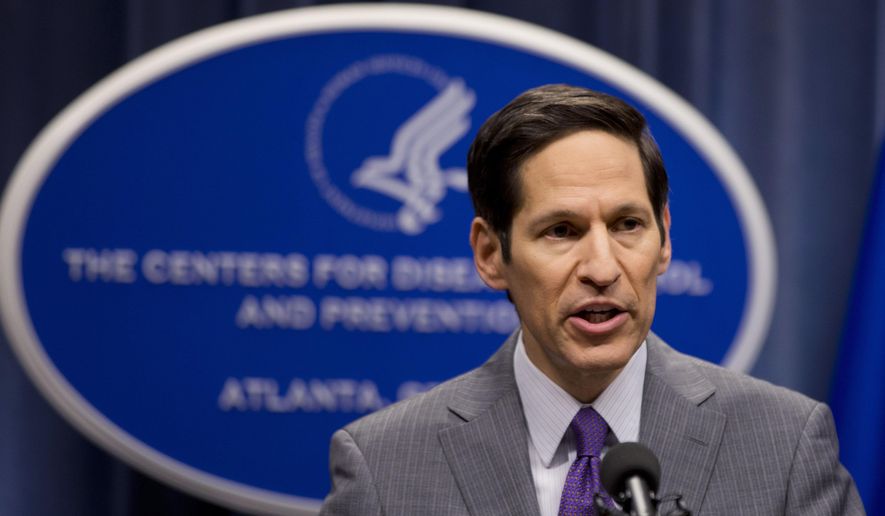As lawmakers raised concerns that sending American troops to fight Ebola in Africa could lead to more Americans being infected, health experts said the troops helping aid workers in Western Africa would be safe.
“The troops going over there are going to be for logistic purposes,” said Anthony Fauci, director of the National Institute of Allergy and Infectious Diseases, Sunday on “Face the Nation.” “They’re well trained, they will not be in direct risk of contact with individuals. And even if they are, the protocols are in place to prevent spread.”
U.S. officials acknowledged rising concern after reports last week of the first Ebola infection detected on U.S. soil in Texas, but insisted the systems were in place to prevent an outbreak similar to what has occurred in several African nations.
The Obama administration is sending about 3,000 military troops to the affected countries to aid the public-health campaign to contain the deadly virus. House Majority Leader Kevin McCarthy, California Republican, said he thinks it’s smart of Congress to ask questions about the safety of the mission and to listen to medical experts to ensure American forces are safe.
“We’re working on it with the administration, we provided more funding in the continuing resolution that speeds up vaccine,” Mr. McCarthy said on CBS’ “Face the Nation.” “But we can not ignore Africa. We have money to go forward with those troops, but we want to make sure there’s a plan out there for the safety of the troops.”
Despite several scares, including two patients in the greater D.C. area who tested negative for Ebola despite having similar symptoms last week, Thomas Frieden, director of the Centers for Disease Control and Prevention, confirmed Sunday that there has only been the one confirmed case of Ebola so far in the U.S., Liberian national Thomas Duncan in Dallas.
Officials are monitoring the 50 people who may have had contact with Mr. Duncan daily for three weeks to ensure they are treated as soon as symptoms appear. Mr. Frieden said he’s confident there won’t be a large number of Ebola cases in the U.S. because of this effective tracing of possible contacts.
“The bottom line is Dallas is contact tracing, that’s how we’re going to stop this disease in its tracks,” he said on CNN.
Mr. Fauci said Americans should not be shocked if one of the 10 family members and roommates who had close contact with the Ebola patient is infected with the virus.
“I would not be surprised if one of the people who came in direct contact with Mr. Duncan when he was sick will get Ebola,” he said
Mr. Frieden said the CDC is working to address how the hospital in Dallas originally missed the diagnosis on Mr. Duncan as well as how they fumbled disposing of infected medical waste.
Mr. Duncan’s condition has worsened since he was belatedly identified as having Ebola. He was listed in critical condition Sunday at a Dallas hospital.
Separately, a doctor admitted to a Massachusetts hospital this weekend for an apparent respiratory infection after surviving the Ebola virus was in stable condition and feeling better Sunday, but still has a fever and cough, hospital officials said as they awaited Ebola testing results.
“Ebola is scary and we understand that people are very concerned,” Mr. Frieden said. “The issue of the missed diagnosis is concerning and that’s why we’re doubling our work.”
The only way to eliminate the risk of contracting Ebola in the U.S. is to control the outbreak in Africa, something Mr. Frieden said is difficult because the virus is spreading so fast that it’s hard for aid workers to keep up. He said he supported the president’s decision to send military personnel to the area.
“It’s going to make a difference, but it’s going to take time,” he said.
Mr. McCarthy agreed that the best way to stop Ebola in the U.S. is to fight the outbreak in Western Africa.
“We’ve got to go to the core of the problem, solve it there and invest in a vaccine and a treatment to cure it once and for all,” he said.
⦁ This article was based in part on wire service reports.
• Jacqueline Klimas can be reached at jklimas@washingtontimes.com.




Please read our comment policy before commenting.